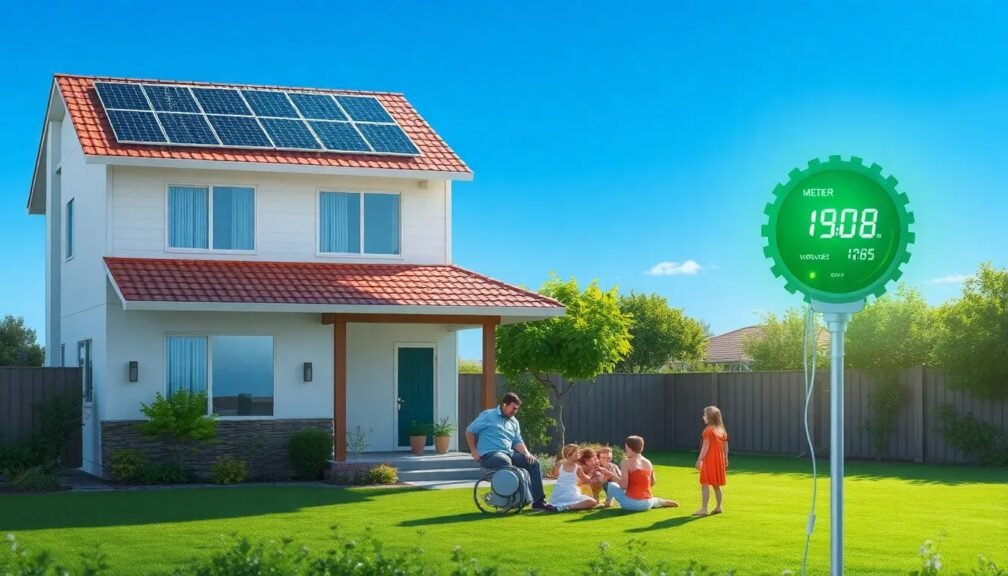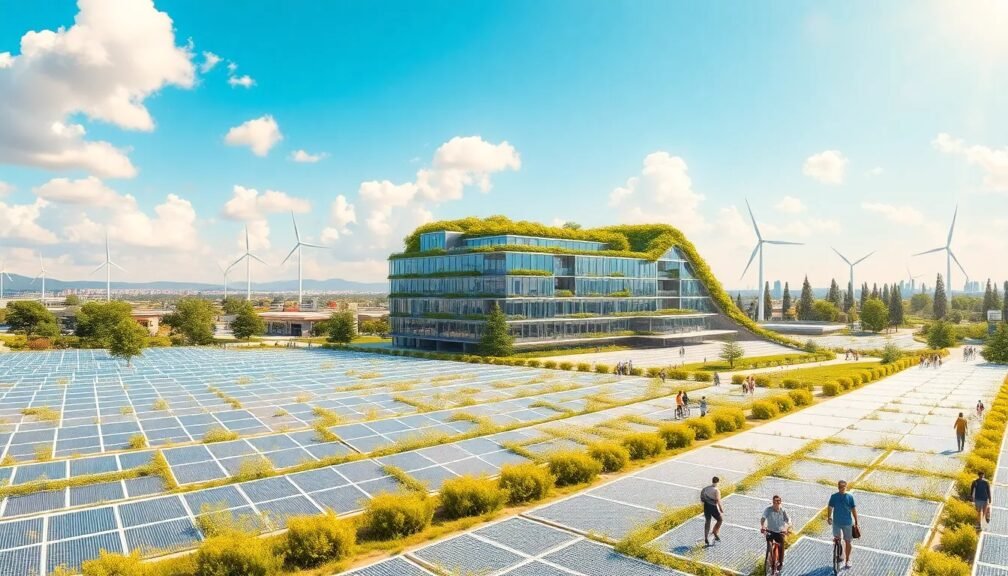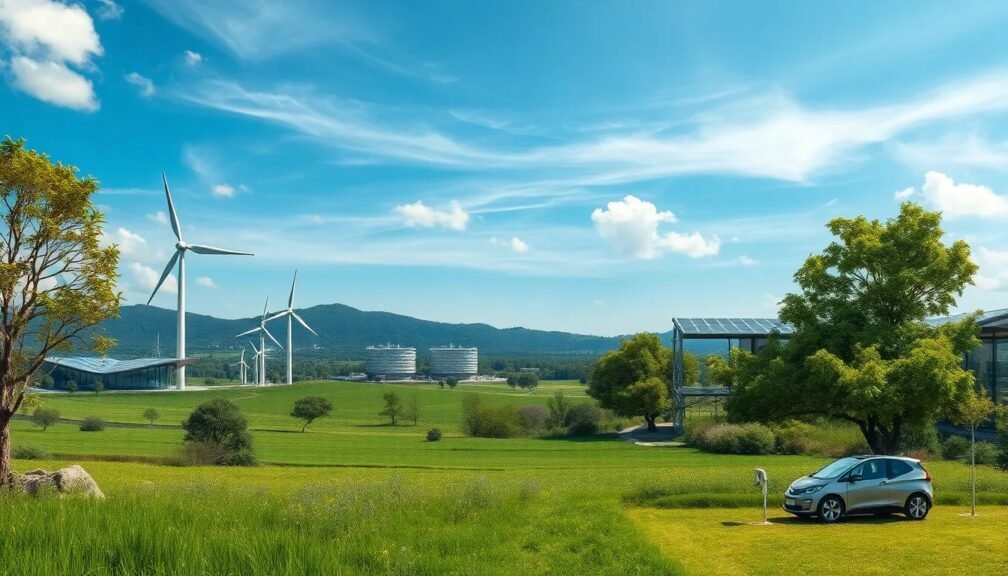In a world grappling with climate change, economic instability, and a growing demand for sustainable solutions, green energy stands out as a beacon of hope. This revolutionary movement is not just about generating power; it’s about reshaping our entire economy in a way that promotes environmental stewardship, economic resilience, and social equity. Join us as we explore how green energy is transforming tomorrow’s economy today.
Understanding Green Energy
Before diving into its transformative potential, it’s essential to define what green energy is. Green energy refers to energy derived from renewable and sustainable sources that have a minimal impact on the environment. Key players in this category include:
- Solar Power: Harnessed from the sun using photovoltaic cells or solar thermal systems.
- Wind Power: Generated from wind turbines that convert kinetic energy into electricity.
- Hydropower: Produced from the movement of water, often through dams or rivers.
- Biomass: Energy derived from organic materials, such as plant and animal waste.
- Geothermal Energy: Derived from the heat within the Earth.
These energy sources are not just viable alternatives to fossil fuels; they represent a necessary leap toward a sustainable future.
The Economic Benefits of Green Energy
1. Job Creation
The green energy sector is a significant driver of employment. According to the International Renewable Energy Agency (IRENA), the renewable energy sector employed over 11 million people worldwide in 2018, with that figure expected to grow as investments increase.
- Growth Areas: Solar panel manufacturing, wind turbine installation, and energy efficiency services are just a few of the high-demand fields generating good, stable jobs.
2. Energy Independence
Transitioning to green energy reduces reliance on imported fossil fuels. By investing in local energy sources, countries can enhance their energy security and stability.
- Resilient Economies: Energy independence leads to decreased vulnerability to volatile oil prices and geopolitical tensions, contributing to economic stability.
3. Cost Savings
Investments in green energy technologies lower long-term energy costs. Once the infrastructure is in place, the cost of maintaining and operating renewable energy systems is significantly lower than that of fossil fuel systems.
- Declining Costs: The cost of solar and wind energy has plummeted over the last decade, making these options not just eco-friendly but economically viable.
Environmental Impact: A Necessary Shift
1. Combating Climate Change
Green energy directly addresses the causes of climate change by reducing greenhouse gas emissions. The burning of fossil fuels is the primary driver of carbon emissions, which contribute to global warming.
- Carbon Neutrality: Transitioning to renewables can pave the way toward achieving carbon neutrality by mid-century—a goal set by many countries worldwide.
2. Reducing Air and Water Pollution
Fossil fuel extraction and combustion have devastating effects on air quality and freshwater resources. Green energy alternatives provide cleaner options that require far less water and produce negligible emissions.
- Health Benefits: Reducing air pollution leads to fewer health-related issues, decreasing public health spending and improving quality of life.
Innovations Driving the Green Energy Movement
1. Technological Advancements
Innovation is critical to the growth of green energy. From more efficient solar panels to advanced wind turbine designs, the technological landscape is continually evolving.
- Energy Storage Solutions: Batteries and other storage technologies are developing alongside renewable energy sources, allowing for a more consistent energy supply.
2. Smart Grids
The integration of smart technology allows for more efficient energy distribution and consumption. Smart grids optimize energy flow based on real-time data, ultimately leading to better energy efficiency.
- Demand Response: Green energy sources can be supplemented by smart technology, enabling users to shift their usage to times when energy is abundant, thus balancing the load and reducing costs.
3. Policy and Regulation Support
Government policies and incentives significantly affect the trajectory of the green energy sector. Many countries are implementing regulations that promote renewable energy investments and penalize carbon emissions.
- Incentives: Tax credits, subsidies, and renewable energy certificates encourage businesses and individuals to adopt greener practices.
Challenges to Overcome
While the green energy revolution is well underway, several challenges remain that hinder its full-scale implementation.
1. Infrastructure Costs
Transitioning from fossil fuels to renewable energy often requires substantial initial investments in infrastructure. This can deter businesses from making the switch.
2. Intermittency Issues
Renewable energy sources like solar and wind are not always reliable due to their dependence on weather conditions. Developing robust energy storage solutions is crucial to overcoming this challenge.
3. Social Acceptance
Cultural attitudes toward energy production and consumption can pose obstacles. Educating communities about the benefits of green energy is essential for fostering acceptance and support.
Conclusion: The Future is Green
As we’ve explored, green energy holds immense potential to reshape our economy and mitigate environmental challenges. From job creation and energy independence to health benefits and climate action, the advantages are clear.
Actionable Insights
-
Invest in Education: Knowledge is power. Advocate for programs that educate young people about renewable energy technologies.
-
Support Local Green Initiatives: Invest in local green businesses or projects that are focused on sustainability and renewable energy solutions.
-
Reduce Energy Consumption: While transitioning to green energy is crucial, individuals can also make a significant impact by reducing energy consumption through energy-efficient appliances and practices.
-
Advocate for Policy Changes: Engage with local representatives about the importance of renewable energy policies and incentives.
-
Stay Informed: Keep abreast of the latest innovations and developments in the green energy sector, allowing you to make informed decisions.
Embracing green energy is not just about preserving our planet; it’s about redefining our economic future for generations to come. The time for change is now, and by taking actionable steps, we can all contribute to a more sustainable and prosperous tomorrow.



